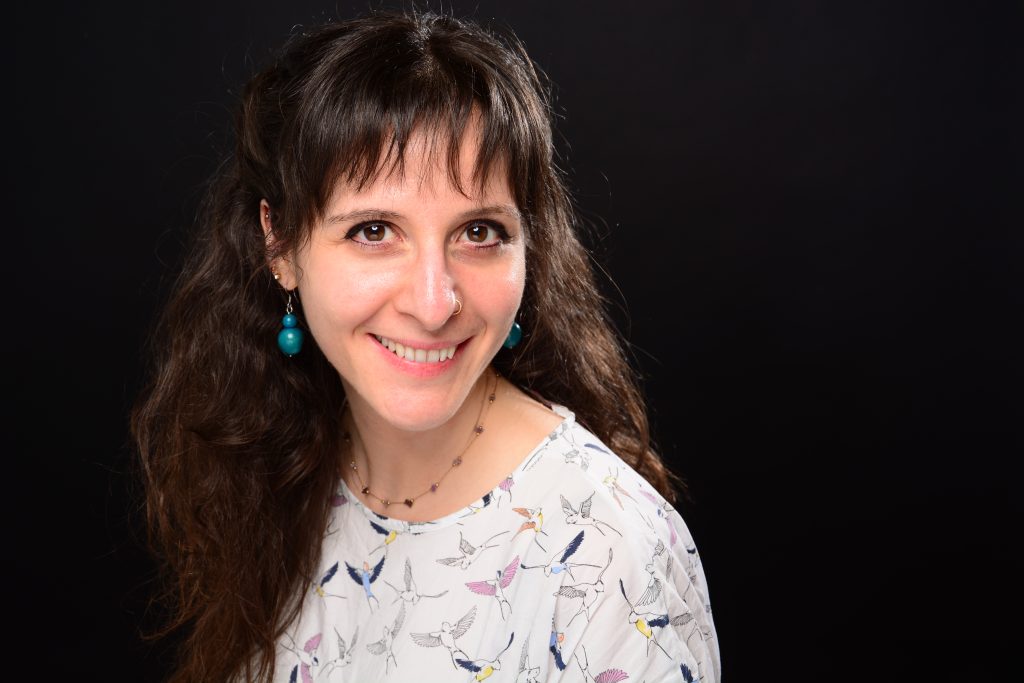Martina Zagni was a PhD researcher in the International Research Training Group “Baltic Peripeties” at the University of Greifswald and successfully defended her thesis in October 2025. Her research interests are focused on the study of the official post-Stalinist Russian poetry, in particular on the elaboration and reception of the historical and socio-political evolution of the Thaw (1953-1964) in the work of Evgenij Evtushenko, Andrei Voznesensky, Bella Akhmadulina and Robert Rozhdestvensky, conducted through a comparative analysis between these authors’ and Socialist Realist poetry.
Dr. des. Martina Zagni

“A poet in Russia is more than a poet”. The New Generation of the Thaw as Stylistic Group: A Case Study
The process of de-Stalinization made it finally possible for Soviet culture to start to free itself from a heavily censored and ideologically contained creative production, even if only partially. Inside this complex literary surrounding, a new group of poets emerged: Evgeny Evtushenko, Andrei Voznesensky, Bella Akhmadulina and Robert Rozhdestvensky were extremely young and at the very beginning of their careers, and therefore extremely receptive to all the changes and new possibilities of this decade.
MORE ABOUT THE PROJECT- “Glossary: Peripety,” in Baltic Peripeties – The Power of Narration and the Making of Regions, ed. Eckhard Schumacher and Cordelia Heß. Göttingen: V&R unipress, 2025, 305-307, https://doi.org/10.14220/9783737017008.299
- “‘За кем же будущее?’ The Young Generation of the Thaw and the New Approach to Poetry,” Русская филология 33 (2024) (= Graduate Student Conference in Russian Language and Literatures (Tallinn–Tartu–Helsinki), University of Tartu, May 12–14, 2023): 157-165, https://dspace.ut.ee/items/6dc29046-451c-415f-9f26-091855c061aa.
- “After Stalin: The Thaw as a Path to New Perspectives in Soviet Russian Poetry,” British Association for Slavonic and East European Studies (BASEES) Annual Conference, Robinson College, Cambridge, April 5-7, 2024.
- “Soviet Russian Literature After Stalin. New Approaches to Poetry,” Third Tallinn Summer School in Soviet History & Culture Disentangling Eurasia. Russian Empire, the Soviet Union, and their Successors, Tallinn University, School of Humanities, Tallinn, July 28 – August 4, 2023.
- “War Citizens and War Opponents. Critical Conscience in the Poetry of the Soviet Thaw and of Contemporary Russia,” Interdisciplinary Centre for Baltic Sea Region Research (IFZO) annual conference Predictable Futures? On the Impact of Fear and Insecurity in the Baltic Sea Region, University of Greifswald, in cooperation with the Pomeranian State Museum, Greifswald, June 7-8, 2023.
- “Narratives Between Past and Future: Peripety as a Tool to Analyze Change in Life and Literature” (with Krista Anna Zalāne), international conference Negotiating Peripeties: Change and Its Narratives, organised by the IRTG Baltic Peripeties. Narratives of Reformations, Revolutions and Catastrophes, University of Greifswald, in cooperation with the Alfried Krupp Institute for Advanced Study Greifswald, May 25-27, 2023.
- “Za kem zhe budushchee? Molodoe pokolenie «Ottepeli» a otnoshenie k sovetskoy russkoy poezii [Where Lies the Future? The Young Generation of the ‘Thaw’ and the New Approach to Soviet Russian Poetry],” Graduate Student Conference in Russian Language and Literatures (Helsinki-Tallinn-Tartu), University of Tallinn [online], May 12-14, 2023.
- “The Foreign Countries,” Baltic University Programme (BUP) PhD Workshop Societies, Cultures, Critical Theories, Centre for Baltic and Eastern European Studies (CBEES), Södertörn University, Stockholm, October 6-7, 2022.
- Academic introduction to the film screening of Soy Cuba (USSR/Cuba 1964), STRAZE, Greifswald, July 13, 2022.
- “The Versification of Architecture as a Political Metaphor: Mastera of Andrei Voznesensky,” International Conference on Poetry Studies Poetry between Creation and Interpretation, London Centre for Interdisciplinary Research, St. Anne’s College, Oxford, March 26-27, 2022.
- “The Transformation of the Empire: De-Stalinization and its Reception in Evtushenko’s Poetry,” 7th Annual Conference of the Centre for Baltic and East European Studies (CBEES) Between and After the Empire: Enduring Past Across the Local and the Global, Södertörn University, Stockholm [online], November 24-25, 2021.
University studies and degrees
- 2017 – 2020
- M.A. in Modern, Post-Colonial and Comparative Literatures at the University of Bologna. Master thesis: The Reception of Evgeny Evtushenko’s Poetry in Italy.
- 2013 – 2017
- B.A. in Foreign Languages and Literatures at the University of Bologna. Bachelor thesis: Master and Margarita of Mikhail Bulgakov. Comparison Between the Integral First Italian Edition and a Reduced Scholastic Edition.